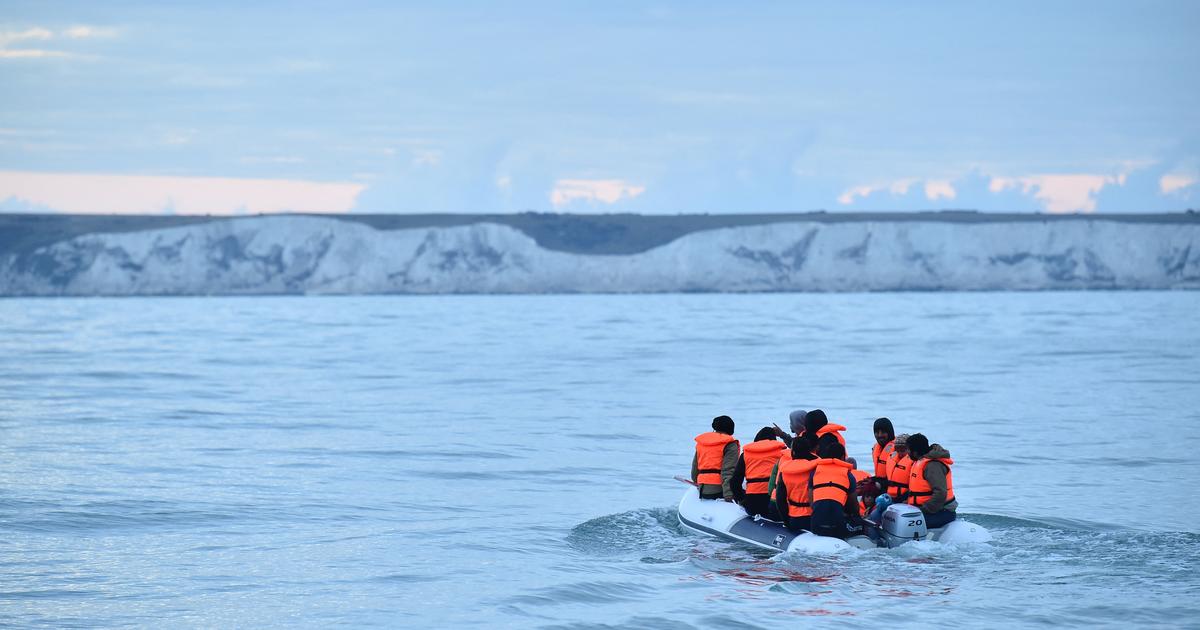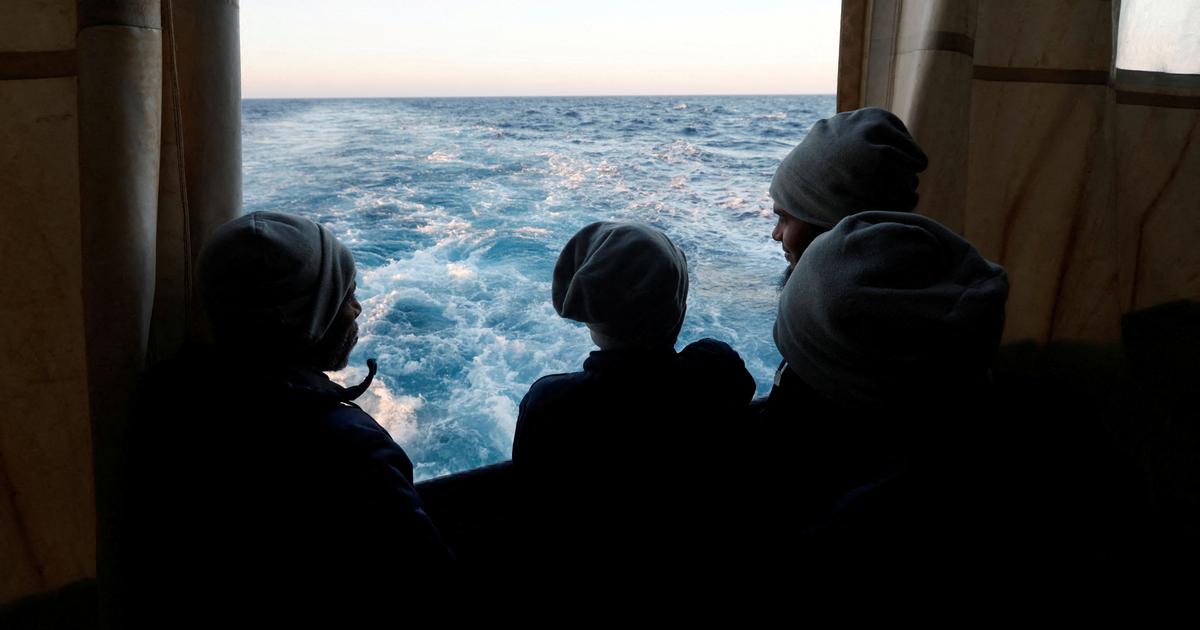Enlarge image
Refugee camp in Sudan: These Ethiopian refugees left their homeland due to the conflicts in the Tigray region
Photo:
Mahmoud Hjaj / Anadolu / Getty Images
In 2020, almost 82.4 million people worldwide were on the run.
This emerges from the new report by the UN refugee agency UNHCR, which SPIEGEL has received in advance.
The organization had already reported a record figure last year.
This has now been broken again, despite the pandemic and borders that have been closed for a long time worldwide.
By December 2020, 30.3 million people had left their home countries, according to the report. In addition, there are 48 million internally displaced people - people who are on the run in their own countries. Mainly due to the crises in Yemen, Ethiopia, Sudan, the Sahel countries, Mozambique, Afghanistan and Colombia, the number of displaced people in their own country rose by more than 2.3 million. The number of asylum seekers remained the same compared to 2019: it is 4.1 million.
In addition to wars and conflicts, it was mainly famine, extreme weather conditions and the consequences of the climate crisis such as drought, storms and floods that prompted people to leave their homes.
Added to this are economic hardships from the pandemic, which worsened poverty in many parts of the world.
Often, write the authors of the study, be it a mixture of these factors that lead people to flee.
42 million children and young people on the run
"Behind each of these numbers is a person who was expelled from his home country, and a fate of flight, uprooting and suffering," says UN Refugee Commissioner Filippo Grandi, whose organization has been determining the number of refugees worldwide for more than 70 years.
In 2010 the UNHCR counted around 40 million refugees and displaced persons, and the number has now more than doubled. Internal displacement in particular has increased dramatically as a result of the wars in Syria, South Sudan and Yemen. "The question is no longer whether the number of displaced people will exceed 100 million people - but when," the authors write in the report.
The Berlin migration researcher Gerald Knaus points out that the 82 million refugees and migrants from the UNHCR report must be classified. A wide variety of fates are summarized among the millions of refugees. For example, there were descendants of Palestinian refugees who have long been living in Jordan as Jordanian citizens, as well as Rohingya who fled Myanmar to Bangladesh or Eritreans who have a permanent residence permit in Sweden as refugees.
"The way the UNHCR talks about the number of refugees unfortunately also plays into the hands of those who warn of non-existent mass migrations," Knaus told SPIEGEL. The number of people who are actually on the run worldwide is increasing, but it is manageable and is around 20 million people. And half of these “new refugees” are already in the EU or in Turkey. "If there were more help for countries of first reception and more resettlement of refugees, as it did forty years ago, this misery could be alleviated," said Knaus.
UNHCR Refugee Commissioner Grandi points out the high number of children and young people who are born on the run or who grow up under her.
42 percent of the displaced, almost half, are girls and boys under the age of 18.
The UN Refugee Agency estimates that almost one million children were born as refugees between 2018 and 2020.
The girls and boys often have little chance of learning at school, receiving adequate medical care or growing up in conditions that are suitable for children.
Many would need trauma therapy in order to come to terms with what they have experienced.
The organization “Save the Children” recently announced that there was an increase in suicide attempts in the refugee camps in northern Syria.
One in five cases in the statistics concerns a child.
You can find an overview of the figures in the report in the graphics.
Here is a summary of the most important points:
Most of the world's refugees come from Syria.
6.7 million people had left the civil war country by the end of 2020.
Another 1.7 million women, men and children also live as displaced persons in the country;
in the Idlib region and northern Syria in tents and camps.
A particularly large number of people have also fled from Venezuela (4.0 million), Afghanistan (2.6 million), South Sudan (2.2 million) and Myanmar (1.1 million).
86 percent of the refugees are taken in by countries with low to middle incomes
; these recipient countries often border directly on war and crisis areas.
Turkey once again took in the largest number of refugees worldwide: 3.7 million people in total, followed by Colombia, Pakistan, Uganda and Germany.
In addition to the situation in Syria
, the chaos in politically and economically torn Venezuela was again a reason for many people to flee.
The number of Venezuelan refugees on the American continent rose by eight percent: around 4.6 million have fled - to Brazil, Mexico, Peru and above all Colombia, which was home to more than 1.7 million people.
On the African continent
, the conflict in the state of Tigray in Ethiopia, where the population is faced with violence and food insecurity, as well as the violent and humanitarian crises in the Sahel region and in northern Nigeria have resulted in the displacement of hundreds of thousands of people. According to the authors of the study, the pandemic and the climate emergency made the situation even more unsafe: At the beginning of 2020, the Sahel region was hit by severe floods, and terror groups used this power and organizational vacuum to expand their influence.
Environmental catastrophes and
extreme
weather conditions once again caused many
refugee
movements:
in May 2020, for example, cyclone Ampham temporarily drove five million people in Bangladesh, Bhutan, India and Myanmar from their homeland.
In many cases the hurricane permanently destroyed houses in such a way that people would not be able to return in the long term.
This contribution is part of the Global Society project
Expand areaWhat is the Global Society project?
Reporters from
Asia, Africa, Latin America and Europe
report under the title “Global Society”
- on injustices in a globalized world, socio-political challenges and sustainable development.
The reports, analyzes, photo series, videos and podcasts appear in the international section of SPIEGEL.
The project is long-term and will be supported by the Bill & Melinda Gates Foundation (BMGF) for three years.
A detailed FAQ with questions and answers about the project can be found here.
AreaWhat does the funding look like in concrete terms?
The Bill & Melinda Gates Foundation (BMGF) is supporting the project for three years with a total of around 2.3 million euros.
Are the journalistic content independent of the foundation?
Yes.
The editorial content is created without the influence of the Gates Foundation.
Do other media have similar projects?
Yes.
Big European media like "The Guardian" and "El País" have set up similar sections on their news sites with "Global Development" and "Planeta Futuro" with the support of the Gates Foundation.
Have there already been similar projects at SPIEGEL?
In the past few years, SPIEGEL has already implemented two projects with the European Journalism Center (EJC) and the support of the Bill & Melinda Gates Foundation: the “Expedition ÜberMorgen” on global sustainability goals and the journalistic refugee project “The New Arrivals” within the framework several award-winning multimedia reports on the topics of migration and flight have been produced.
Where can I find all publications on global society?
The pieces can be found at SPIEGEL on the topic Global Society.








/cloudfront-eu-central-1.images.arcpublishing.com/prisa/D2BVXS52B5CFFDJ6QIQPKP2QMA.jpg)
